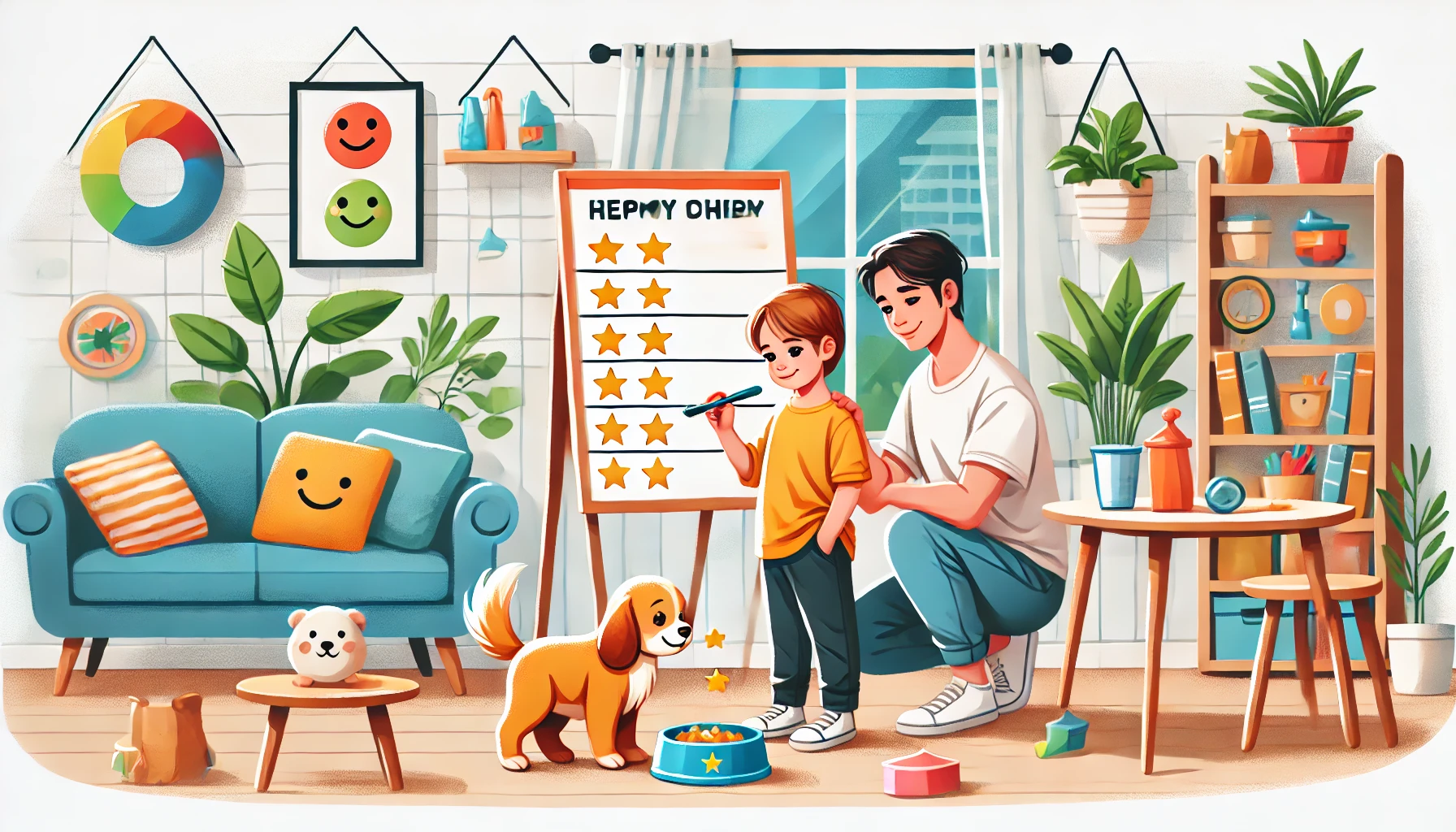Responsibility is one of the most important values a child can learn early in life. It helps children build trust, become more independent, and understand the consequences of their actions. Teaching responsibility and ownership doesn’t mean adding pressure—it means guiding your child to take pride in their efforts, care for their belongings, and be accountable in age-appropriate ways.
Why Responsibility Is a Key Skill in Early Childhood
- Builds confidence and independence
- Encourages respect for others and shared spaces
- Fosters self-discipline and good habits
- Develops problem-solving and decision-making skills
- Lays the foundation for academic and social success
1. Explain What Responsibility Means
Start by using simple language and real-life examples.
Activity Idea:
- Say: “Being responsible means doing what you said you would do.”
- Use examples: putting toys away, helping with a pet, or brushing teeth without reminders.
- Ask: “What do you take care of at home?”
What Kids Learn:
- That responsibility is about following through.
- How their actions affect others.
- That they are capable and trusted.
2. Give Age-Appropriate Tasks
Kids learn best when they have hands-on opportunities to be responsible.
Activity Idea:
- Assign simple chores like setting the table, organizing toys, or feeding a pet.
- Use a picture chart or checklist so they can track their progress.
- Rotate tasks weekly to keep things fresh and engaging.
What Kids Learn:
- That they have a role in taking care of things.
- How consistency builds confidence.
- That effort leads to a sense of achievement.
3. Let Them Make Choices and Handle the Results
Responsibility includes making decisions and learning from them.
Activity Idea:
- Offer two choices: “Would you like to clean up blocks or books first?”
- If they choose not to complete a task, gently explain the impact: “Now we don’t have time to play our game.”
- Avoid rescuing too quickly—allow space for learning.
What Kids Learn:
- That choices have consequences.
- How to think ahead.
- That they are in control of their actions.
4. Praise Effort and Follow-Through
Positive reinforcement strengthens good habits.
Activity Idea:
- Say: “You remembered to put your shoes away without being asked—that’s being responsible!”
- Use a “Responsibility Star Chart” to highlight consistency.
- Reflect: “How did it feel to do that all by yourself?”
What Kids Learn:
- That responsibility feels good.
- That they’re seen and appreciated.
- How effort is more important than perfection.
5. Encourage Ownership After Mistakes
Mistakes are learning moments—don’t avoid them.
Activity Idea:
- If your child spills something, guide them in cleaning it up instead of doing it for them.
- Say: “It’s okay to make a mess. What can we do to fix it?”
- Avoid blame—focus on solutions and responsibility.
What Kids Learn:
- That everyone makes mistakes.
- How to take responsibility with confidence.
- That fixing things builds character.
6. Use Stories to Reinforce Responsibility
Books and stories help children visualize what being responsible looks like.
Activity Idea:
- Read books like What If Everybody Did That? or The Berenstain Bears and the Trouble with Chores.
- Ask: “What did the character do that was responsible?”
- Create a simple story with your child as the hero who solves a problem.
What Kids Learn:
- That responsibility is a theme in many situations.
- How actions impact others.
- That they can be the helper, not just the learner.
7. Model Responsibility Daily
Children learn most from what they see.
Activity Idea:
- Narrate your actions: “I’m packing my bag so I don’t forget anything tomorrow.”
- Follow through on promises so your child sees what accountability looks like.
- Admit when you forget something and model how to make it right.
What Kids Learn:
- That responsibility is part of everyday life.
- That adults make mistakes and fix them too.
- How honesty and follow-through go hand-in-hand.
8. Create a Family Culture of Responsibility
When everyone contributes, kids feel like valued members of the team.
Activity Idea:
- Hold a short family meeting each week to talk about shared responsibilities.
- Celebrate wins together: “We all helped clean today—our home feels great!”
- Post a “family job board” where tasks rotate and everyone participates.
What Kids Learn:
- That teamwork and responsibility are connected.
- That everyone’s effort matters.
- A sense of pride and belonging.
Final Thoughts
Teaching young children about being responsible and taking ownership builds the foundation for lifelong success. With encouragement, clear examples, and consistent routines, you can help your child grow into someone who is proud to care for themselves, others, and the world around them.
